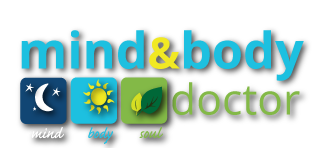Knowledge is the key to unlocking potential and opening doors to success. To get started down the road to a more rewarding life, you need to be able to identify strengths as well as any specific challenges that may stand in your way. Psychological evaluations give you answers to these questions and serve as your map to be your best.
Psychoeducational testing is often referred to as psychological assessment. The purpose of this evaluation is to gain a comprehensive understanding about the way a person learns and to determine an individual’s current level of academic, behavioral and emotional functioning. These tests are most typically conducted when an individual is struggling in school or is having difficulty with test taking. A Psychoeducational Evaluation is often conducted in order to determine whether a specific learning disability or other disorder (e.g., ADHD, Dyslexia, Dyscalculia, Dysgraphia) may be impacting significantly on a student’s academic performance. For instance, the presence of a learning disability, attention deficit disorder, or emotional disorder can result in a great deal of academic frustration and inability for a student to perform at his/her level of innate potential. For example, it has been estimated that 15 to 20% of students have a learning disability. A learning disability is diagnosed when assessment results reveal a significant gap between a student’s scores on achievement tests (in reading, mathematics, and/or written language) and his/her educational expectancy range (based upon age, grade, educational background and instruction, and intelligence). In addition to determining whether a student has a specific disability that impacts learning, plainly stated, Psychoeducational evaluations provides a good indication of how a student learns best (i.e., his/her learning style) as well as individual strengths and weaknesses. This information is then used as a guide for making recommendations about which teaching, remediation, and compensatory strategies will be most effective for a student to succeed. Once the teacher, parent, and student are empowered with this knowledge, they can make adjustments in order to maximize the student’s learning potential.
Dr. Cherwony takes great pride in her comprehensive and thorough evaluation process. A battery of carefully selected tests includes standard measures used for most children, as well as additional tests as needed for the child’s individual needs. In this way, Dr. Cherwony has information to compare children against the thousands she has seen and has become very sensitive to what is within normal development. The additional tests help to gain further insight into specific areas of concern so that the appropriate treatment plan can be formulated. For example, when testing for a learning disability in reading, aside from knowing that a child has dyslexia, Dr. Cherwony wants to know what other contributing factors underlie their difficulties. Many children have either attentional or language processing deficits. Once we know this information, we will also know what specific interventions will help get the best outcome for your child to be successful. Along with school struggles, it is common that many children also suffer from anxiety or other emotional component. It is therefore imperative that a comprehensive assessment is completed for a child when warranted. For these reasons, Dr. Cherwony frequently helps identify difficulties in children who were either misdiagnosed or who had otherwise slipped through the cracks.
Psychoeducational Testing may include:
- IQ and other Cognitive Tests (Visual, Auditory, Information processing, etc.)
- Language Processing
- Attention
- Achievement Tests (reading, math and written expression)
- Emotional Testing (For example, are symptoms of depression or anxiety impacting on a child’s learning)
- Personality Testing
- Socia, Emotional, and Behavioral Functioning
Learn More About
- ADHD
- Dyslexia or Specific Learning Disability with impairment in Reading
- Dyscalculia or Specific Learning Disability with impairment in Math
- Dysgraphia or Specifc Learning Disability with impairment in Written Expression
- Nonverbal Learning Disability (NVLD)
I believe in a multi-disciplinary team approach and have spent years establishing relationships with other professionals and doctors in
the community who I highly respect and refer to as needed. In the event that I determine that you or your child will benefit from either an additional or alternative intervention, I will refer you to that professional I deem as best for your specific needs. I believe in treating all of my clients the same way I would want someone else to treat my own children and other family members.
Dr. Cherwony meets with children, teens, and adults in her Boca Raton and North Palm Beach offices to conduct evaluations.
